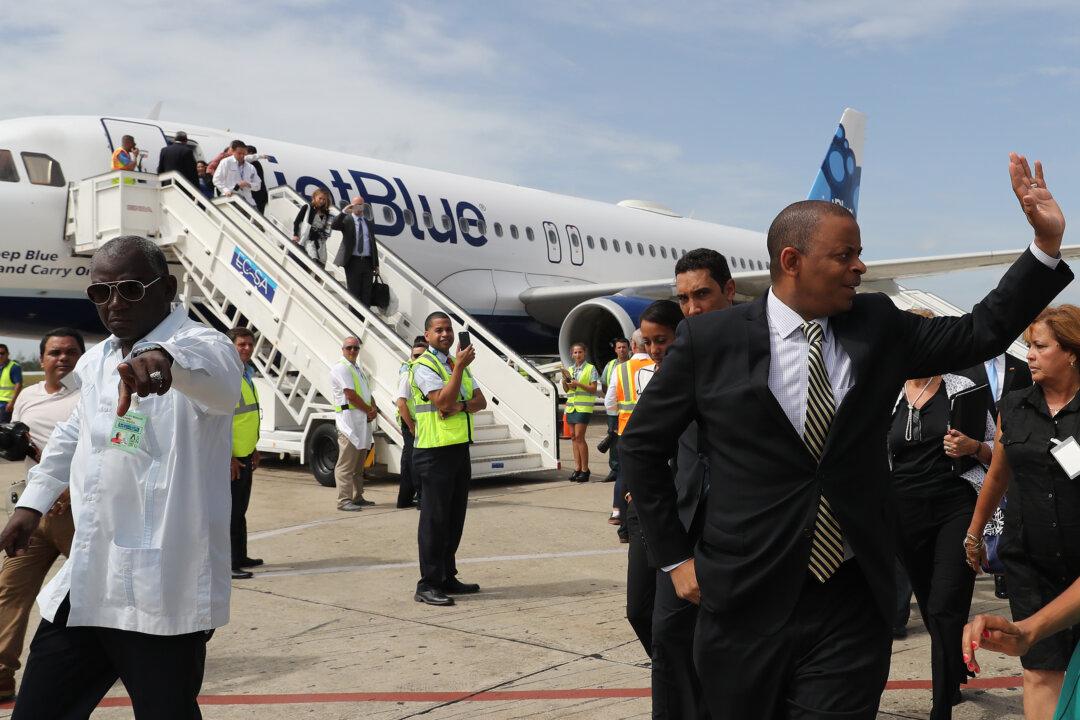After Cuban cigars, it’s commercial flights between the United States and Cuba which are staging a come-back.
After a 55-year embargo, eight airlines got permission to fly to Cuba and JetBlue was the first airline to land in the once forbidden land.
A JetBlue flight with 150 passengers took off from Fort Lauderdale and landed at Abel Santamaría Airport in Santa Clara city on Aug. 31. This marked the first U.S. scheduled commercial flight since 1961. JetBlue now flies three times a week from Fort Lauderdale to Santa Clara.
The commercial airline service started a year after the United States and Cuba restored diplomatic ties.
“For the first time in decades, families separated by only a short stretch of water can easily and affordably visit a loved one, attend an important occasion or visit a special place–and the role we play speaks directly to our mission of inspiring humanity,” said Robin Hayes, president and chief executive officer of JetBlue.
The island, which is 90 miles off the Florida coast requires visitors to obtain an entrance visa. However, Americans still cannot visit Cuba for a beach holiday.





